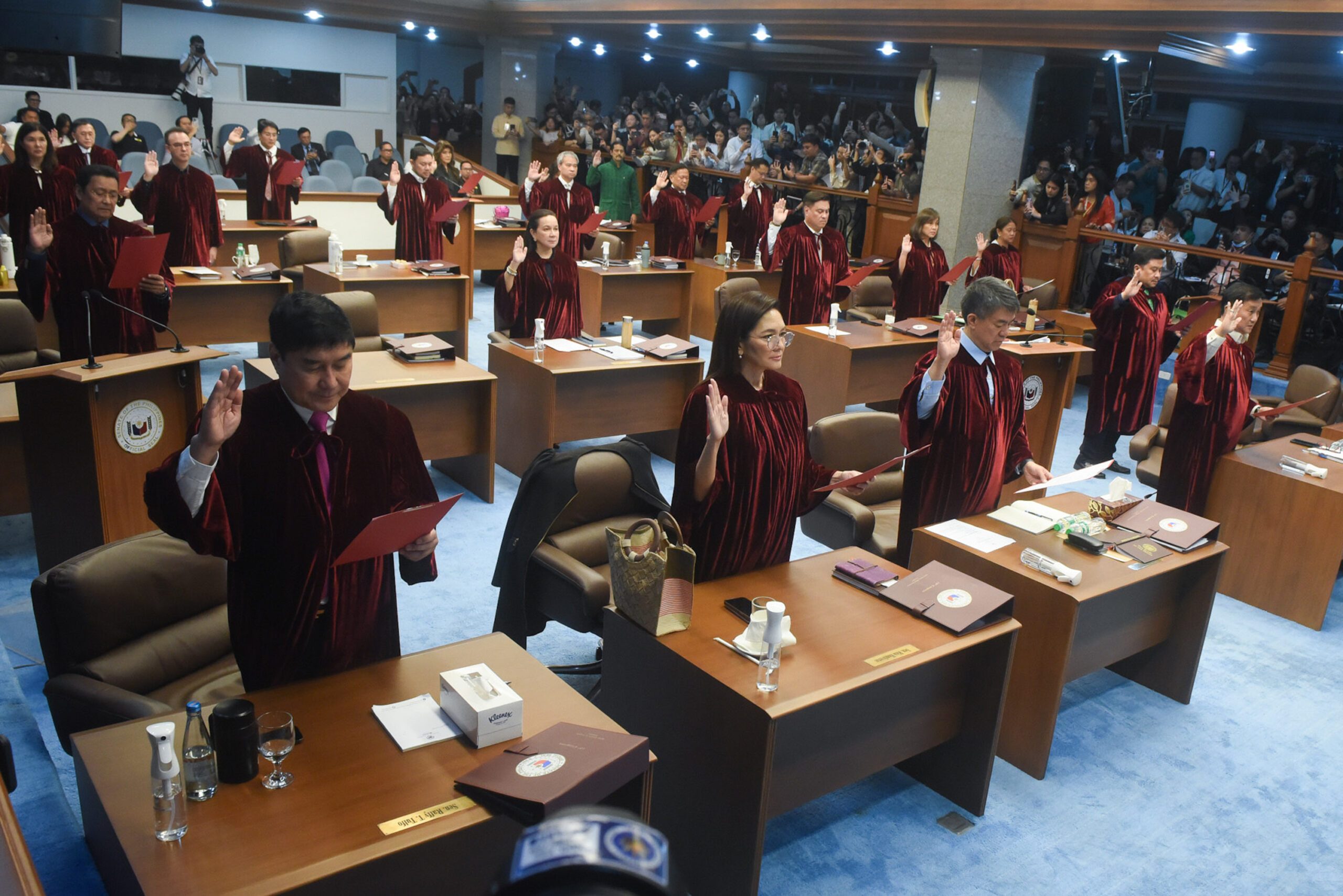Physical Address
304 North Cardinal St.
Dorchester Center, MA 02124
Physical Address
304 North Cardinal St.
Dorchester Center, MA 02124

(1st UPDATE) The Senate minority bloc argues that remanding the case to the House is tantamount to the dismissal of the impeachment case against Sara Duterte
MANILA, Philippines – The Senate has decided to return the impeachment articles against Vice President Sara Duterte to the House of Representatives to supposedly allow the latter to address alleged constitutional infirmities in the complaint, raising further uncertainties on the fate of trial.
Remanding the case to the lower chamber is tantamount to dismissal of the case, the Senate minority bloc argued on Tuesday, June 10.
Senator Ronald “Bato” dela Rosa originally wanted to dismiss the impeachment case, but the motion he raised was not positively met by his colleagues, who said it would be premature for the Senate to decide whether or not to junk the case without allowing the prosecution and defense teams to make their case.
Dela Rosa ended up agreeing to Senator Alan Peter Cayetano’s suggestion to amend the motion, which was to return the articles the House until such time that:
Senate President and presiding officer Chiz Escudero insisted that the move is not tantamount to dismissal of the case.
“Whatever happens, we will issue summons [to Duterte],” Escudero said.
“Motion to dismiss or motion to remand, that’s all the same. It’s an effective termination of impeachment. Remand is functional dismissal,” Senator Risa Hontiveros from the two-member minority bloc said.
Senator Win Gatchalian also insisted there’s no point in remanding the case to the House, which is expected to certify the complaint it transmitted to the Senate as constitutionally sound.
“Why can’t we just push through with the trial proper and discuss the issue there?” Gatchalian asked.
The Senate convened as an impeachment court earlier Tuesday after senator took their oath as judges.
Throughout proceedings on Tuesday, senators allied with the Vice President echoed arguments she outlined in the petition she filed with the Supreme Court — that her impeachment in the House was unconstitutional.
Duterte had said that the House deliberately froze the initiation of the impeachment process when it sat on supposedly weak impeachment complaints because if junked, she would benefit from the constitutional one-year immunity from impeachment.
Not acting on the complaints therefore violates the Constitution, Duterte had claimed.
“This can be called grave abuse of discretion!” Dela Rosa said.

The move to remand the case to the House, however, is likely to cast doubts on the future of the trial.
Escudero has already said the 19th Congress cannot bind the 20th Congress about impeachment.
There have been debates on whether the impeachment case can carry over from the 19th Congress to the 20th Congress.
In proceedings, remanding means a case will be returned to the previous body that handled it or another body for further proceedings and actions.
Some legal experts do not see the point in remanding the case to the House.
“I think it’s unconstitutional. First, the Constitution is clear that the Senate’s role is to try and decide. It is not supposed to supervise the House, which also has an exclusive power to initiate cases of impeachment. Second, it violates constitutional structure. The House and Senate are constitutionally equal even if they have different roles in impeachment,” said University of the Philippines (UP) College of Law constitutional law professor Paolo Tamase.
According to Tamase, returning the impeachment case back to the lower chamber violates constitutional structure since the House and the Senate are constitutionally equal. Under the impeachment rules, the House endorses the impeachment complaint to the Senate after it impeaches a public official.
“[The] Constitution is clear that the Senate’s role is to try and decide. It is not supposed to supervise the House, which also has an exclusive power to initiate cases of impeachment,” the law professor told Rappler.
“In addition to those, it sets bad [a] precedent—it allows the Senate to punt a politically difficult impeachment to the other House, potentially resulting in an endless ping-pong. It’s not a reading of the impeachment provisions that furthers accountability of not just the impeached officer, but the Senate as well,” he added.
Constitutional law expert Dante Gatmaytan said he “doesn’t see any point” in remanding the impeachment case.
“It is only the Supreme Court that can determine the constitutionality of the acts of the House or Representatives,” Gatmaytan said. – Rappler.com